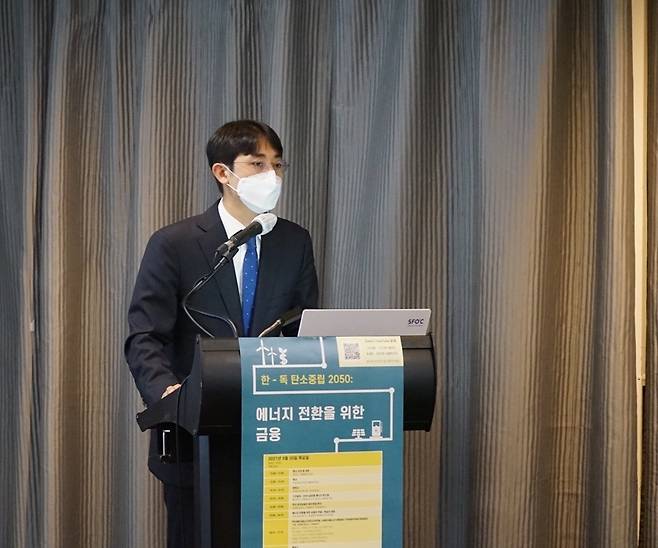'Korea downplays impact of liquefied natural gas on climate change'
이 글자크기로 변경됩니다.
(예시) 가장 빠른 뉴스가 있고 다양한 정보, 쌍방향 소통이 숨쉬는 다음뉴스를 만나보세요. 다음뉴스는 국내외 주요이슈와 실시간 속보, 문화생활 및 다양한 분야의 뉴스를 입체적으로 전달하고 있습니다.

South Korean public financing institutions have played down the impact of liquefied natural gas on climate change, according to climate activist group Solutions for Our Climate on Thursday.
Greenhouse gases are being emitted throughout the liquefied natural gas supply chain -- from extraction to liquefaction, transportation, regasification and consumption -- said the climate activists during an event held in Seoul.
“The threat of greenhouse gas emission from the liquefied natural gas power generation is being underestimated,” said Youn Se-jong, Climate Finance Program Director at SFOC, during the event dubbed “KR-DE road to 2050: Financing Clean Energy Transition” co-hosted by the Embassy of Germany in Korea, Democratic Party of Korea lawmaker Rep. Lee So-young, SFOC and Climate Transparency
Given that pollutants such as carbon dioxide and methane are emitted through the liquefied national gas production cycle, Youn claimed that it is “insufficient to review emissions from the liquefied natural gas simply at the consumption stage.”
Moreover, 46 percent of oil and gas-related public financing by Korea, a shipbuilding powerhouse, went to projects for drill ships, offshore plants and transportation vessels, according to SFOC’s estimate.
“Up to 45 percent of greenhouse gases are produced before arriving at end-use facilities,” he said.
This brings to light Korean institutions‘ combined financing of $82 billion in the upstream and midstream process for oil and gas, before the actual end-stage for power consumption, from 2011 to 2020.
This is among a total of $137 billion in fossil fuel-related financing -- ranging from coal to oil and gas --over the past decade by Korea‘s public finance institutions, such as the Korea Trade Insurance Corp. (K-Sure), the Export-Import Bank of Korea, the Korea Development Bank. Of the total, $10 billion went to coal-related projects, which all declared support for the Task Force on Climate-Related Financial Disclosures.
By Son Ji-hyoung(consnow@heraldcorp.com)
Copyright © 코리아헤럴드. 무단전재 및 재배포 금지.